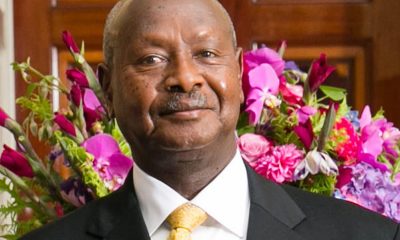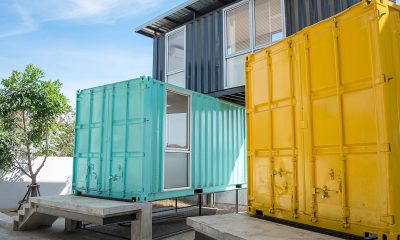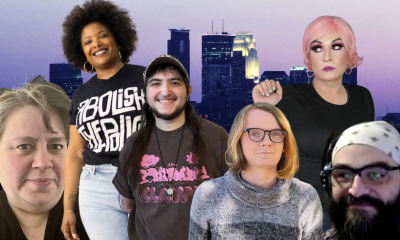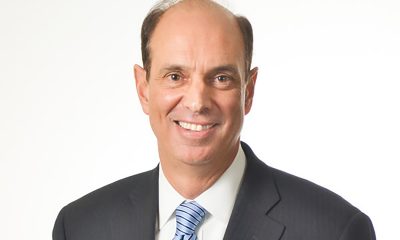Africa
UNAIDS: Anti-LGBTQ laws in Africa could prompt spike in HIV cases
Ugandan President Yoweri Museveni in May signed Anti-Homosexuality Act
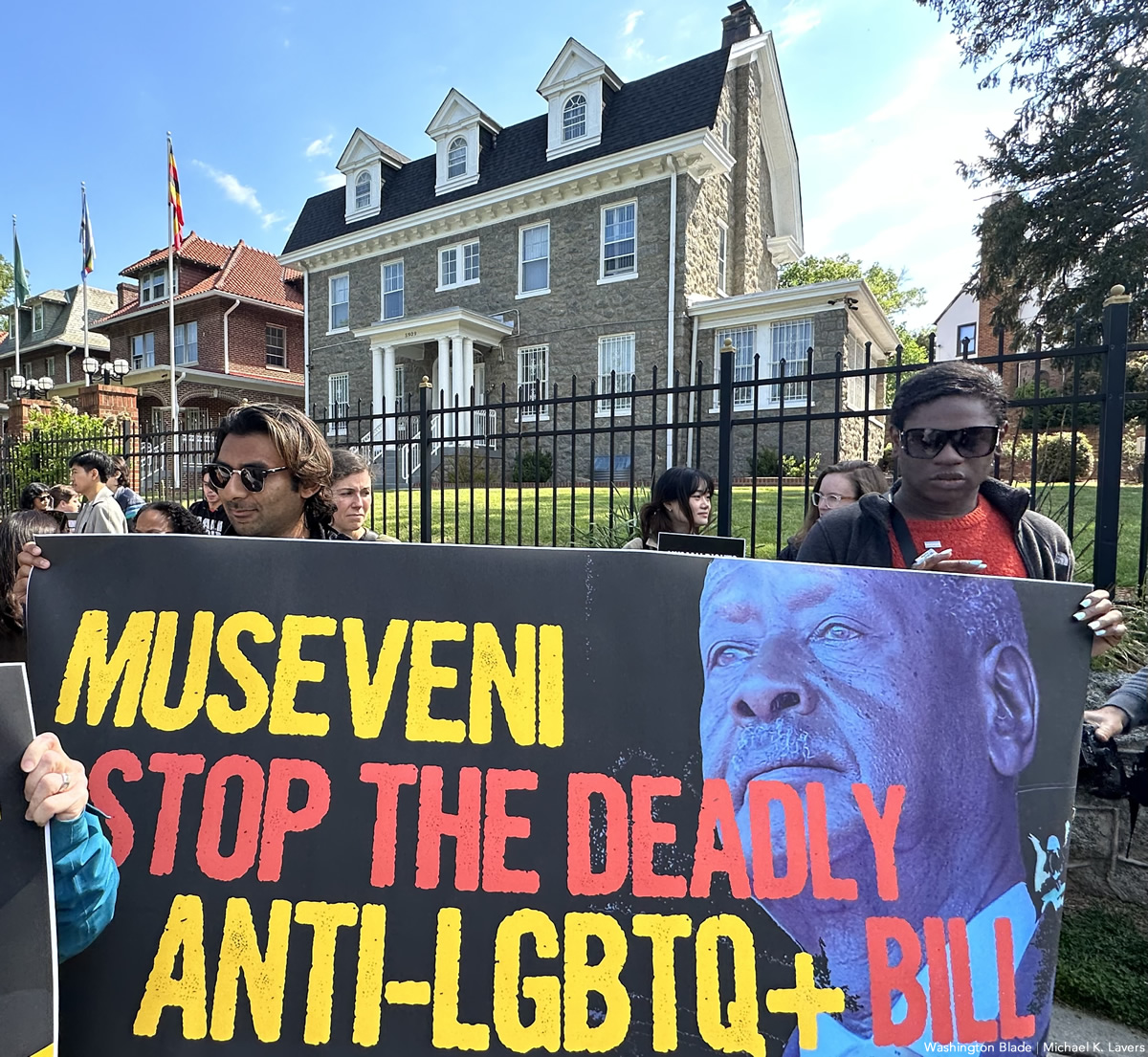
The U.N body on the HIV pandemic has raised concerns over a spike in the disease among gay and transgender people in eastern and southern Africa due to harsh anti-homosexuality laws.
The UNAIDS in its latest 2023 Global AIDS Update report released last month notes laws criminalizing consensual same-sex relations have remained a major obstacle in preventing and treating HIV among the LGBTQ community. These statutes have been enacted in the region the disease has impacted the most and in a part of Africa that has seen significant progress in reducing the number of new HIV infections.
New HIV infections have dropped by 57 percent and AIDS-related deaths have decreased by 58 percent among heterosexual people since 2010.
“HIV incidence has reduced substantially by 73 percent since 2010 among adult men aged 15–49 years, but it is not declining among gay men and other men who have sex with men,” reads the 196-page UNAIDS report.
HIV prevalence in 2022 around the world was 11 times higher among gay men aged 15-49 years, compared to heterosexual men within the same age bracket and 14 times higher among trans people.
The report reveals the HIV prevalence among gay men stands at 12.9 percent and 42.8 percent for trans persons in 21 of 24 surveyed countries in eastern and southern Africa where a total of 20.8 million people in live with the virus.
The disease remains rife among gay men and trans people and efforts to combat it among the aforementioned population continues to lag because of stigma and discrimination in accessing equitable HIV care from anti-homosexuality laws in Uganda, Kenya, Tanzania and in other countries.
A total of 67 countries in the world criminalize homosexuality, with nearly half of them being in Africa. Twenty countries criminalize trans people.
A recent survey in 10 sub-Saharan African countries showed HIV prevalence among gay men was five times higher in countries that criminalize consensual same-sex relationships compared Rwanda and South Africa and other nations that don’t.
The survey also notes HIV prevalence was 12 times higher in countries that use anti-homosexuality laws to prosecute gay men, compared to nations without such prosecutions. It also notes HIV prevalence was more than nine times higher in countries that curtail the operations of pro-LGBTQ civil society organizations, compared to nations that do not obstruct them.
UNAIDS Executive Director Winnie Byanyima noted HIV/AIDS killed one person every minute last year. She also called for stronger collaboration and equality to end the disease by 2030.
“HIV responses succeed when they are anchored in strong political leadership to follow the evidence, tackle the inequalities holding back progress, enable communities and civil society organizations in their vital roles in the response and ensure sufficient and sustainable funding,” she said.
The UNAIDS report points out gay men and trans people are left out of HIV treatment programs in eastern and southern Africa, where coverage among adult women stands at 86 percent and men at 78 percent.
The neglect that punitive laws and police harassment exacerbates has, in turn, led to HIV prevention gaps that increase the risk of transmission and limit access to services and sabotages efforts to decrease the impact of the virus among the group.
Uganda this year enacted the Anti-Homosexuality Act with a death penalty provision for “aggravated homosexuality” and severe punishment for organizations the government claims promote homosexuality. A similar punitive bill is set to be introduced in Kenya’s Parliament.
Ugandan President Yoweri Museveni’s decision to sign the Anti-Homosexuality Act in May saw a U.S.-funded HIV treatment clinic in Kampala that normally sees dozens of patients a day almost deserted because clients, many of them gay, feared arrest.
“Removal or reform of these laws in line with public health evidence would boost the HIV response and the human rights of people from marginalized populations, particularly, key populations who continue to have much higher HIV prevalence than the general population,” the UNAIDS report states.
In 2022, a total of $9.8 billion meant for universal HIV financing in eastern and southern Africa was spent. Thirty-nine percent of this money was domestic funding, while the rest came from the Global Fund, UNAIDS, the U.S. Agency for International Development and other international donor organizations. Botswana, Kenya and South Africa contributed the largest share of donor funding.
UNAIDS asks countries to use disaggregated data to effectively identify populations to ensure the LGBTQ community and other key groups are not left out of HIV care since many countries lack programs and size estimates. UNAIDS also requests stronger action against stigma and discrimination at healthcare facilities in order to increase access and use of HIV testing and treatment services by all people, regardless of their sexual orientation.
“Failure to protect people from key populations against HIV will prolong the pandemic indefinitely at great cost to the affected communities and societies,” warns UNAIDS.
UNAIDS notes Singapore and other countries last year repealed laws that criminalize consensual same-sex sexual relations and trans people and introduced statutes that protect gender identity. UNAIDS, nevertheless, in its report raised concerns over an increase in homophobia and transphobia in countries that prompt the introduction of anti-homosexuality laws.
Uganda
LGBTQ Ugandans targeted ahead of country’s elections
President Yoweri Museveni won 7th term in disputed Jan. 15 vote

Barely a week after Ugandan President Yoweri Museveni secured a 7th term in an election marred by state violence, intimidation, and allegations of fraud, the country’s queer community spoke about how the election environment impacted it.
The LGBTQ lobby groups who spoke with the Washington Blade noted that, besides government institutions’ failure to create a safe and inclusive environment for civic participation by all Ugandans, authorities weaponized the Anti-Homosexuality Act to silence dissent and discourage queer voter engagement.
The rights groups note that candidates aligned with Museveni’s ruling National Resistance Movement — including Parliament Speaker Anita Among — during the campaigns accused their rivals of “promoting homosexuality” to discredit them while wooing conservative voters.
Queer people and LGBTQ rights organizations as a result were largely excluded from the formal political processes for the election as voters, mobilizers, or civic actors due to fear of exposure, stigma, violence, and legal reprisals.
“This homophobic rhetoric fueled public hostility and emboldened vigilante violence, forcing many queer Ugandans into deeper hiding during the election period,” Uganda Minority Shelters Consortium Coordinator John Grace stated.
Some queer people had expressed an interest in running for local council seats, but none of them formally registered as candidates or campaigned openly because of safety concerns and local electoral bodies’ discriminatory vetting of candidates.
“UMSC documented at least three incidents of election-related violence or intimidation targeting LGBTQ+ individuals and activists,” Grace noted. “These included harassment, arbitrary detentions, extortions by state and non-state actors, digital cat-fishing, and threats of outing.”
Amid such a militarized and repressive election environment, Let’s Walk Uganda Executive Director Edward Mutebi noted queer-led and allied organizations engaged in the election process through restricted informal voter education, community discussions, and documenting human rights violations.
“Fear of backlash limited visibility and direct participation throughout the election cycle,” Mutebi said. “But despite the hostile environment of work, Let’s Walk Uganda was able to organize a successful transgender and gender diverse youth training on electoral security and safety.”
Museveni’s government escalated its repressive actions during the Jan. 15 elections by shutting down the internet and suspending nine civil society organizations, including Chapter Four Uganda and the National Coalition of Human Rights Defenders, for allegedly engaging in activities that are prejudicial to the security and laws of the country.
The suspension of the rights organizations remains in force, an action both Mutebi and Grace condemn. They say it prevents queer Ugandans from accessing urgent services from the affected groups.
“For the LGBTQ community, the impact has been immediate and deeply harmful. Many of the suspended organizations, like Chapter Four Uganda, were critical partners in providing legal representation, emergency response, and documentation of rights violations,” Grace said.
This has compelled UMSC and its other partners to handle increased caseloads with limited resources, while navigating heightened scrutiny and operational risk.
“The suspension has disrupted referral pathways, delayed urgent interventions, and weakened collective advocacy for marginalized groups and minority rights defenders, which calls for urgent international solidarity, flexible funding, and protection mechanisms to safeguard the work of grassroots organizations operating under threat,” Grace stated.
Mutebi warned that such repressive actions are tyrannical and are indicative of shrinking civic space, which undermines democratic accountability as the promotion and protection of human rights is ignored.
With Museveni, 81, extending his tenure at State House from a landslide win of 72 percent, UMSC and LWU consider a bleak future in the protection of rights for queer Ugandans and other minority groups.
“Without significant political and legal shifts, LGBTQ persons will face continued criminalization, reduced civic space, and heightened insecurity, making sustained advocacy and international solidarity more critical than ever,” Mutebi said. “ It is unimaginable how it feels to live in a country with no hope.”
Grace, however, affirmed the resistance by local queer lobby groups will continue through underground networks, regional solidarity, and digital organizing.
The duo noted that a win by Museveni’s main challenger and rapper, Bobi Wine, who only managed 24 percent of the total votes cast, could have enabled the opening up of civil space and human rights protections in Uganda.
Wine, for his part, spoke in favor of the respect for the rule of law and human rights during his campaign.
“While Bobi Wine’s past stance on LGBTQ rights was inconsistent, his recent shift toward more inclusive rhetoric and international engagement suggested a potential opening for dialogue,” Grace said. “A win might have created space for policy reform or at least reduced state-sponsored homophobia, though structural change would still require sustained pressure and coalition-building.”
Mutebi stated that a change in Uganda’s leadership to a youthful leader like Wine could have offered an opening, but not a guarantee for progress on inclusion and human rights. Mutebi added existing institutionalized and societal homophobia remain in place.
Egypt
Iran, Egypt object to playing in Seattle World Cup ‘Pride Match’
Game to take place on June 26

Iran and Egypt have objected to playing in a “Pride Match” that will take place in Seattle during the 2026 World Cup.
The Egyptian Football Association on Tuesday said it told FIFA Secretary General Mattias Grafström in a letter that “it categorically rejects holding any activities related to supporting (homosexuality) during the match between the Egyptian national team and Iran, scheduled to be held in Seattle, USA, on June 26, 2026, in the third round of the group stage of the 2026 World Cup.” Football Federation Islamic Republic of Iran President Mehdi Taj told ISNA, a semi-official Iranian news agency that both his country and Egypt “protested this issue.”
The 2026 World Cup will take place in the U.S., Canada, and Mexico. The draw took place at the Kennedy Center on Dec. 5.
Iran is among the handful of countries in which consensual same-sex sexual relations remain punishable by death.
The State Department’s 2023 human rights report notes that while Egyptian law “did not explicitly criminalize consensual same-sex sexual activity, authorities regularly arrested and prosecuted LGBTQI+ persons on charges including ‘debauchery,’ prostitution, and ‘violating family values.’” Egyptian authorities “also reportedly prosecuted LGBTQI+ individuals for ‘misuse of social media.’”
“This resulted in de facto criminalization of same-sex conduct and identity,” notes the report.
The 2024 human rights report the State Department released earlier this year did not include LGBTQ-specific references.
Soccer has ‘unique power to unite people across borders, cultures, and beliefs’
The June 26 match between Iran and Egypt coincides with Seattle Pride. The Washington Post reported the Seattle FIFA World Cup 2026 Local Organizing Committee decided to hold the “Pride Match” before last week’s draw.
“As the Local Organizing Committee, SeattleFWC26’s role is to prepare our city to host the matches and manage the city experience outside of Seattle Stadium,” said SeattleFWC26 Vice President of Communications Hana Tadesse in a statement the committee sent to the Washington Blade on Wednesday. “SeattleFWC26 is moving forward as planned with our community programming outside the stadium during Pride weekend and throughout the tournament, partnering with LGBTQ+ leaders, artists, and business owners to elevate existing Pride celebrations across Washington.”
“Football has a unique power to unite people across borders, cultures, and beliefs,” added Tadeese. “The Pacific Northwest is home to one of the nation’s largest Iranian-American communities, a thriving Egyptian diaspora, and rich communities representing all nations we’re hosting in Seattle. We’re committed to ensuring all residents and visitors experience the warmth, respect, and dignity that defines our region.”
The 2034 World Cup will take place in Saudi Arabia.
Consensual same-sex sexual relations remain punishable by death in the country. The 2022 World Cup took place in neighboring Qatar, despite concerns over the country’s anti-LGBTQ rights record.
Eswatini
PEPFAR delivers first doses of groundbreaking HIV prevention drug to two African countries
Lenacapavir now available in Eswatini and Zambia.
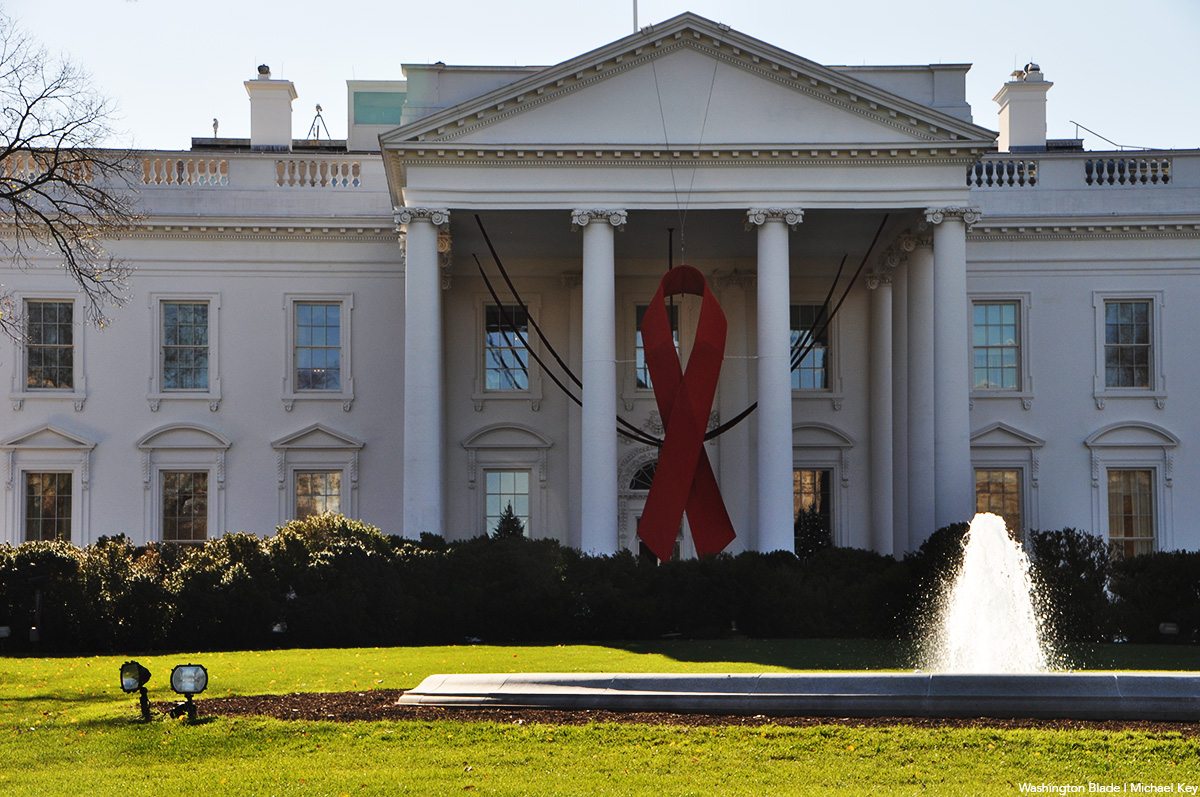
The State Department on Tuesday announced PEPFAR has delivered the first doses of a groundbreaking HIV prevention drug to two African countries.
The lenacapavir doses arrived in Eswatini and Zambia.
The State Department in September unveiled an initiative with Gilead Sciences to bring lenacapavir “to market in high-burden HIV countries.”
Lenacapavir users inject the drug twice a year.
The State Department in its September announcement noted everyone who participated in Gilead’s clinical trials remained HIV negative. It also said lenacapavir “has the potential to be particularly helpful for pregnant and breastfeeding mothers, as it safely protects them during and after pregnancy to prevent mother-to-child transmission.”
“In our new America First Global Health Strategy, the Department of State is establishing a first-of-its-kind innovation fund to support American-led research, market-shaping, and other dynamic advancements in global health,” said PEPFAR on Tuesday in a press release.
“The arrivals of the first doses of lenacapavir in Eswatini and Zambia mark an important milestone in HIV prevention and reflect our commitment to supporting communities with the greatest need,” added Gilead CEO Daniel O’Day. “For the first time, a new HIV medicine is reaching communities in sub-Saharan Africa in the same year as its U.S. approval.”
The September announcement came against the backdrop of widespread criticism over the Trump-Vance administration’s reported plans to not fully fund PEPFAR and to cut domestic HIV/AIDS funding. The Washington Blade has previously reported PEPFAR-funded programs in Kenya and other African countries have been forced to curtail services or even close because of U.S. funding cuts.



